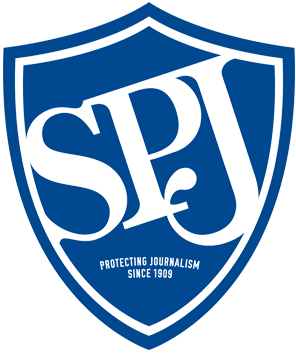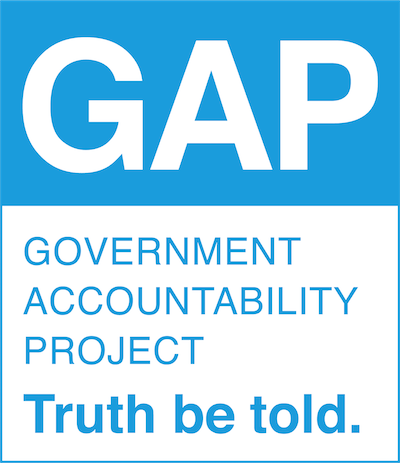The Whistleblower Project


– Introduction
– A Call to Action: Whistleblower Protection Legislation
If passed, these laws would help improve protection for whistleblowers.
Whistleblower Basics
– The Law and Whistleblowing
Deciphering the laws dealing with whistleblowing is complicated, but we hope this will help.
– Whistleblowers and Retaliation
Those who expose wrongdoing can face job loss, lawsuits or even prison.
– Leaking vs. Whistleblowing
Can you spot the difference between a leaker and a whistleblower? It may be trickier than you think.
– Nine Organizations That Work With and Help Whistleblowers
Best Practices for Journalists
– Source Protection and Anonymity for Whistleblowers
In political journalism, there’s a debate over allowing sources to talk to you off the record, in order to keep the access pipeline flowing. Anonymity and the ethics of it can also be complicated in situations beyond scoring political points.
– Whistleblowers and Reporters: Trust
Here are some best practices to follow when working with a whistleblower on a story.
– Technology Can Help Whistleblowers Communicate Anonymously
The ways that reporters and whistleblowers communicate is evolving. The introduction of secure communications has become necessary as journalists try to protect their sources, all the while trying to guarantee the information is secure.
– Anonymity: Not Always the Possible, Nor Always the Best, Strategy
Many whistleblowers want to disclose information about trouble in their workplaces while maintaining their anonymity. However, the vast majority of whistleblowers — more than 95 percent — try to solve their problems internally first.
– When Working with Whistleblowers, Same Ethical Journalism Principles Apply
Government Accountability Project’s “Working with Whistleblowers: A Guide for Journalists” details best practices for working with whistleblowers.
Voices
– Kathryn Foxhall: Good whistleblowing simply needs free speech
During the last 25 years it’s become an accepted norm for government, business, nonprofits and other organizations to prohibit employees to ever communicate with journalists without notifying and being overseen by the authorities, often public information officers. The restrictions are intense, highly effective censorship. The Society of Professional Journalists has made opposing them a priority.
– Jesselyn Radack: Challenges in Defending National Security Whistleblowers
War crimes, mass surveillance, torture: some of the biggest stories in modern history relied on whistleblowers in national security and intelligence agencies. They came forward at great risk to expose the truth.
– Nick Schwellenbach: The Modern Politics of American Whistleblowing
Insiders Valued More Highly in U.S. Society, But Still Face Perils.
 Kathryn Bolkovac is a former Nebraska policewoman who served as an International Police Task Force human rights investigator in Bosnia. Working for a private contracting firm assigned to support the UN peacekeeping mission in that country, she discovered that officers were involved in gross wrongdoing, including human trafficking and forced prostitution.
Get the full details of Kathryn's story, along with 24 other times whistleblowers changed history.
Kathryn Bolkovac is a former Nebraska policewoman who served as an International Police Task Force human rights investigator in Bosnia. Working for a private contracting firm assigned to support the UN peacekeeping mission in that country, she discovered that officers were involved in gross wrongdoing, including human trafficking and forced prostitution.
Get the full details of Kathryn's story, along with 24 other times whistleblowers changed history.
Features
– Mary Willingham: An Attempt To Make The College Athletic System Better For Athletes
Mary Willingham talks about why she spoke out about the treatment of college athletes at North Carolina and why — despite death threats from college sports enthusiasts — she would do it again.
– Megan Wood: Reporting with Purpose
Megan Wood talks about why she looked into San Diego Christian College’s missing $20 million in expenses and how whistleblowers make a difference in their communities.
– Richard Bowen: Blowing the Whistle on Defective Mortgages
While evaluating $90 billion of mortgages Citigroup was buying from Countrywide and other lenders, former Citigroup vice president Richard Bowen tried to warn company leaders and board members about the rise in defective mortgages. In 2010 he testified before the Financial Crisis Inquiry Commission. Here, in Bowen’s words, is what happened next.
– Craig Watts: Typical American Farmer Risks Career to Reveal Inhumane Conditions at Chicken Farms
Craig Watts was a typical American farmer with three kids, two dogs, and a barn full of chickens. That all changed though when he decided to show the public the conditions chickens, sold by Perdue farms, were being raised in.
Credits
Meet the Project Team
Either the whistleblower remains in anonymity, quietly basking in the knowledge that he or she has helped make the world a better place, or is regarded as a hero for blowing the whistle and exposing wrongdoing.
But those views are usually literary license. In reality, many whistleblowers face real-life consequences for sharing information, or even being suspected of sharing information.
For every Mark Felt, the FBI official who served as a Virgil-like guide for Bob Woodward in Watergate, there are other whistleblowers who suffer for doing what they see as the right thing. It can range from losing a job, facing lawsuits or, in extreme cases, going to prison.
The most extreme case of retaliation was the prosecution of Chelsea Manning, who released a treasure trove of documents related to the war in Iraq in 2011, including video of an Apache helicopter killing 12 civilians — including journalists — in Baghdad. Manning believed releasing the documents through Wikileaks could “change the world for the better.”
Instead, she was found guilty of 22 counts related to the unauthorized possession and distribution of military and diplomatic documents and was sentenced to 35 years in military prison, but was acquitted on the worst charge, aiding the enemy.
In 2016, President Barack Obama commuted her sentence to time served, but did not pardon her from the charges.
Daniel Ellsberg, who leaked the Pentagon Papers outlining the history of the Vietnam War and how American officials were lying about the conduct of the war, also faced prosecution for conspiracy, espionage and stealing government property. But the charges were dismissed when prosecutors discovered that President Richard Nixon had authorized a team to burglarize Ellsberg’s psychiatrist’s office in an attempt to find information to discredit the whistleblower.
But there are more insidious attempts to retaliate against whistleblowers.
One is so-called Ag-Gag laws. These laws are specifically targeted at people who would seek to expose wrongdoing at feedlots, ranches, farm or other agricultural operations. Exposing issues with the nation’s food supply is a time-honored tradition, going back to Upton Sinclair’s The Jungle, which led to the passage of the Pure Food and Drug Act and the formation of the U.S. Food and Drug Administration.
But today, agricultural interests see such exposures as an attack on their industries, likening them to terrorism, and turn to their allies in state Legislatures to pass laws that make taking surreptitious photos, videos and audio recordings criminal acts. An Iowa law even made possessing such imagery a crime, which attorney Dara Lovitz said deters journalists from reporting on abuses in the agriculture industry.
Utah saw the first person charged under an Ag-Gag law in 2013 when Amy Meyer got video of an injured or ill cow being carried off with a bulldozer. Although she was filming from a public easement outside the Draper, Utah, slaughterhouse, she was still cited for violating the law. While the charges were dropped, Meyer, the Animal Legal Defense Fund, and the People for Ethical Treatment of Animals sued the state, and received a $349,000 settlement from the state. A judge also struck down Utah’s Ag-Gag law, but other laws like it remain on the book.
Another way whistleblowers can be targeted is through what is known as the “Strategic Lawsuit Against Public Participation.” In such lawsuits, the business is not trying to win so much as to silence or discredit the whistleblower, dragging him or her through an expensive lawsuit designed to bankrupt them with legal expenses while serving as a warning to others not to speak up.
When WCPO-TV in Cincinnati did a story about complaints against a local dentist, the dentist instead filed suit against the patients and former employees who spoke to reporters and exposed the billing errors and other issues with the dentistry in 2003. The station was not named in the suit, which instead, targeted people who did not have the resources for a prolonged lawsuit that could potentially end in a multi-million-dollar judgment. WCPO-TV successfully petitioned the court to be added as a defendant in the suit, and agreed to cover the defense of their sources. The dentist’s suit was dismissed in 2005, when the judge found that the statements were either provably true or protected expressions of opinions.
Sometimes such defendants are not lucky enough to have a media outlet protect them in that way. Some states attempt to address this through anti-SLAPP laws, which allow a defendant to argue in court that the lawsuit is an attempt to quash public debate.
Whistleblowers can also risk retaliation in the form of losing their jobs and having their reputations targeted. An example of that was Jeffrey Wigand, the Brown and Williamson executive who exposed the practice of manipulating nicotine levels to make cigarettes more addictive and thus hook more customers.
Wigand was the target of a full-court press by the industry to discredit him. He was forced out of his job, subjected to death threats, and was the target of a campaign to discredit him and anything he may say about what the tobacco industry knew about nicotine’s addictive qualities.
Journalists should be aware that a whistleblower is taking a great risk in coming forward, and should do all that is possible to protect them, even recommending an attorney who can help them navigate the laws that offer whistleblowers protection.